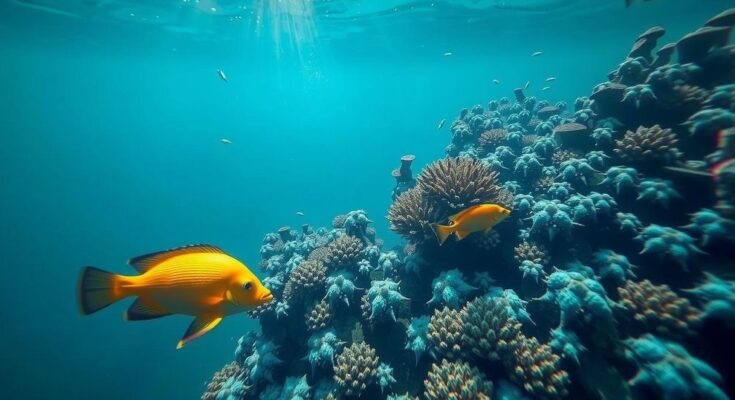Ocean acidification, driven by climate change, represents a significant threat to marine ecosystems, food chains, and economies. Recent discussions at COP16 in Colombia and ongoing dialogues at COP29 in Azerbaijan highlight its urgency. Dr. Sabine Mathesius from the Potsdam Institute stresses the need for immediate action to combat this invisible but critical issue.
Climate change poses multifaceted threats to marine ecosystems, particularly through the phenomenon of ocean acidification. This invisible and insidious change is jeopardizing marine biodiversity, disrupting food chains, and destabilizing economies reliant on ocean resources. Researchers addressed these urgent concerns during the recent COP16 biodiversity conference in Colombia, highlighting the escalating significance of ocean acidification in global climate discussions, including the ongoing COP29 climate change conference in Azerbaijan. Dr. Sabine Mathesius, a postdoctoral researcher at the Potsdam Institute for Climate Impact Research, elucidated the gravity of this issue, emphasizing the need for immediate action to mitigate its effects.
Ocean acidification occurs as a result of increased carbon dioxide emissions, which are absorbed by the oceans, leading to a lower pH level. This change adversely affects marine organisms, particularly those with calcium carbonate shells or skeletons, such as corals and certain shellfish. The implications extend beyond marine life, impacting human activities and economies that depend on healthy ocean ecosystems. The acknowledgment of ocean acidification’s critical threat at international conferences signifies a growing recognition among scientists and policymakers alike.
The ongoing discussions around ocean acidification at global conferences underscore its significance as a peril associated with climate change. Addressing this invisible threat is crucial for preserving marine life, sustaining food chains, and protecting the livelihoods of communities dependent on ocean resources. As highlighted by experts, urgent actions and international collaboration are essential to mitigate the impacts of ocean acidification and combat climate change effectively.
Original Source: www.france24.com




